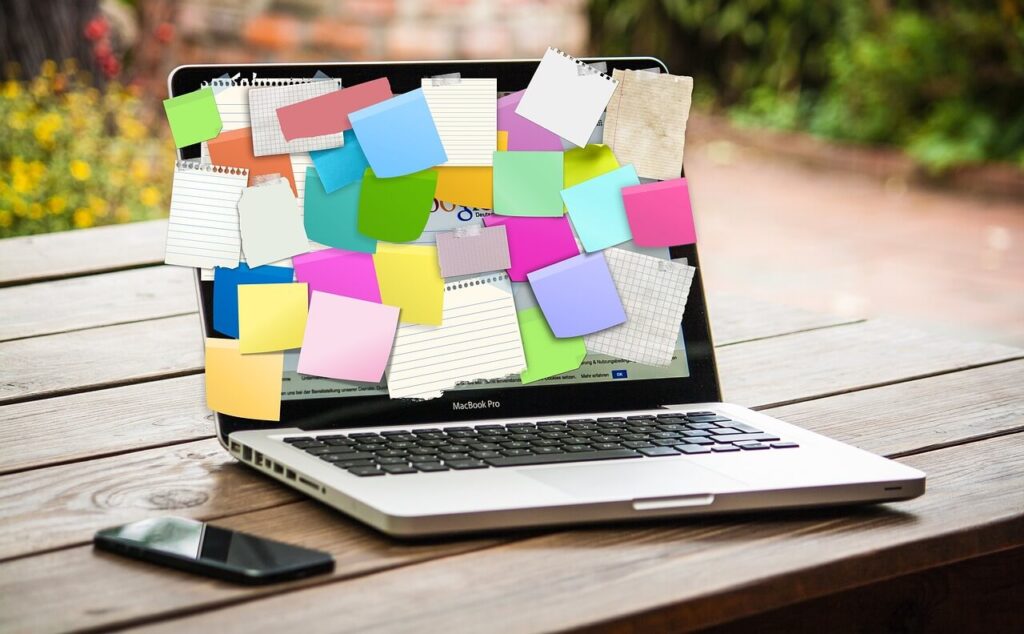Do you often find yourself getting distracted when you need to complete an important task? Are you struggling to stay focused in a world full of distractions? You are not alone. In today’s fast-paced world, it’s easy to get distracted and lose focus. However, there are ways to combat this and improve your concentration. In this blog post, we will share tips and strategies on how to stay focused and reduce distractions. Whether you’re a student, professional, or anyone seeking to boost productivity, these tips will help you achieve your goals and get things done. So, let’s dive in!
Understanding the Importance of Focus
How to stay focused is a critical skill to achieve success in both personal and professional life. When we focus on a task, we can work faster, better, and accomplish more. Ignoring distractions is the key to focus.
Distractions can come from all sources, such as social media, phone notifications, and emails. These distractions can make it challenging to stay focused and reduce productivity. Reducing distractions is vital to focus.
In today’s fast-paced world, staying focused is not easy, but it is essential. By concentrating on a task, we are more likely to make fewer mistakes and complete the task on time. A focused mind is also more creative, innovative, and solution-oriented.
We need to train our mind to stay focused on the task at hand and not get sidetracked by external distractions. Practicing mindfulness techniques can help us strengthen our focus. Mindfulness involves paying attention to the present moment without judgment.
By focusing on our breath or an object, we can improve our concentration and reduce our tendency to get distracted. Another way to improve focus is by taking regular breaks to recharge our mental batteries.
Identifying Common Distractions
In order to learn how to be focused, it is important to first identify common distractions that can hinder your ability to stay on task. One of the biggest distractions is technology, such as smartphones, social media, and email notifications. It can be easy to get sidetracked by these things, but it is important to resist the temptation and ignore distractions.
Other distractions include noise, cluttered workspaces, and interruptions from coworkers or family members. It can be difficult to avoid all of these things, but there are ways to minimize their impact. For example, you can wear noise-cancelling headphones, tidy up your workspace, and communicate with others about the importance of uninterrupted work time.
It’s also important to be aware of internal distractions, such as stress, fatigue, and lack of motivation. These things can make it difficult to stay focused, but there are strategies you can use to combat them. For example, taking breaks, practicing mindfulness, and setting realistic goals can all help you maintain your focus.
Overall, identifying common distractions is a crucial first step in learning how to stay focused. Once you know what is likely to derail your concentration, you can take steps to minimize these distractions and create a more productive work environment. With a little practice and effort, you can master the art of staying focused and achieve your goals more efficiently.
Tips For Improving Focus
1. Prioritize tasks: Make a list of tasks and prioritize them based on urgency and importance.
2. Break tasks down: Breaking down tasks into smaller parts makes them easier to handle and reduces the risk of becoming overwhelmed.
3. Eliminate distractions: Turn off your phone and close unnecessary tabs on your computer to eliminate potential distractions.
4. Practice mindfulness: Stay in the present moment and focus on one task at a time.
5. Take breaks: Schedule regular breaks to recharge your energy and clear your mind.
6. Exercise: Regular exercise has been shown to improve focus and concentration.
7. Use positive self-talk: Use affirmations to reinforce how to stay focused and believe in your ability to complete tasks.
8. Limit multi-tasking: Trying to do multiple things at once can lead to decreased productivity and a lack of focus.
9. Stay organized: Keep your workspace and materials organized to avoid clutter and distractions.
10. Practice patience: Developing focus is a process and takes time and practice. Be patient and consistent in your efforts to improve your ability to stay focused.
In summary, improving focus requires intentional effort and the implementation of specific techniques, such as prioritizing tasks, breaking them down, eliminating distractions, and practicing mindfulness and positive self-talk. Incorporating regular exercise, staying organized, and limiting multi-tasking can also contribute to increased focus and productivity. Remember to practice patience and consistency in your pursuit of better focus.
Creating A Distraction-Free Environment
To truly understand how to stay focused, you need to create an environment that is conducive to concentration. A cluttered and noisy workspace is not the ideal place for work that requires intense concentration.
Reducing distractions begins with taking control of your environment. Start by turning off your phone or putting it on silent mode. Also, consider using earplugs or headphones to block out noise.
Organize your workspace by removing unnecessary items and papers that could cause a distraction. Create a simple system for managing your paperwork and files.
Make sure your lighting is adequate and not too dim or bright, as both can cause eye strain and headaches.
If you work in a noisy environment, try to find a quiet place to work or use a white noise machine to create a soothing background sound.
Finally, it’s important to eliminate digital distractions. Turn off your email notifications, close your social media tabs, and use website-blocking software if necessary.
Creating a distraction-free environment can greatly improve your ability to stay focused and increase productivity. With these tips, you’ll be able to reduce distractions and create an environment that supports your ability to concentrate.
Using Time Management Techniques to Stay On Track
Time management techniques are crucial in learning how to stay focused. By setting priorities, scheduling tasks, and tracking progress, you can effectively manage your time and stay on track.
One useful technique is the Pomodoro technique, where you work for 25 minutes, then take a 5-minute break. This can help break up tasks and improve focus.
Another technique is to prioritize tasks by their importance and urgency, focusing on the most critical tasks first. This helps to reduce distractions and increase productivity.
Additionally, tracking your progress and regularly assessing your goals can help you stay on track and adjust your approach if necessary.
It’s also essential to be realistic with your time and avoid overcommitting yourself. By setting realistic expectations and prioritizing tasks, you can avoid feeling overwhelmed and improve your ability to stay focused.
Finally, remember to take breaks and allow yourself time to recharge. Regular breaks can help reduce distractions and improve overall focus and productivity.
By using time management techniques, you can reduce distractions and improve how to stay focused. Prioritizing tasks, tracking progress, and taking breaks can help you effectively manage your time and stay on track.


